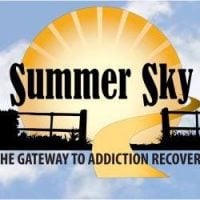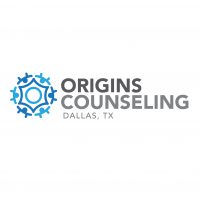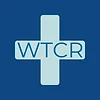Anchor of Hope Opoid Treatment Program
Drug Rehab Center in Dallas, Texas
Anchor of Hope Opoid Treatment Program is a comprehensive Dallas, TX based treatment center with individualized programs and evidence-based therapies to aid individuals in overcoming opioid addiction, substance abuse, and mental health disorders.
About This Dallas, TX Facility
Anchor of Hope Opoid Treatment Program is a state-approved outpatient opioid treatment clinic located in Dallas, Texas. Its mission is to provide a safe, caring, and therapeutic environment for those suffering from drug addiction, guiding patients and their families through the recovery process with the goal of living life to its full potential without drugs.
The clinic aims to help individuals overcome addiction and achieve lasting sobriety. Its approach emphasizes comprehensive care tailored to each person's unique needs, drawing from evidence-based practices and the latest medical research.
Accredited by SAMHSA and LegitScript, Anchor of Hope offers a range of treatment methods and levels of care, including aftercare support, drug rehab, intensive outpatient, outpatient, and detox services. These accreditations demonstrate the facility's commitment to providing effective, high-quality care.
- Individualized treatment plans
- Medically-supervised detox
- Psychotherapy for underlying mental health issues
- Group and individual counseling sessions
The facility specializes in treating opioid addiction, substance abuse, drug addiction, alcohol abuse, and co-occurring mental health disorders. Its comprehensive approach addresses the complex nature of addiction, offering long-term solutions for lasting recovery.
For individuals struggling with opioid dependence or other substance use disorders, Anchor of Hope provides a supportive environment and evidence-based therapies to help them overcome addiction. Through its multifaceted treatment approach, the facility empowers clients to achieve sobriety and reclaim their lives.
Genders
Ages
Modality
Additional
Accreditations
SAMHSA

LegitScript
Conditions and Issues Treated
Rehab centers exist in Dallas, TX to help individuals bounce back from substance abuse, which is an umbrella term for drug and alcohol addiction. Drug addiction refers to the use of illegal drugs and improper use of prescription drugs. Centers like Anchor of Hope Opoid Treatment Program provide individuals a chance to access individual and group therapy that can be monumental for recovery.
Substance abuse includes all problems that stem out from using various psychoactive substances. It is also a diagnostic term used by Diagnostic and Statistical Manual of Mental Disorders (DSM-IV) to define the mental and physical impairment or distress caused by misuse and overuse of certain substances in a period of 12 months.
Opioid addiction involves addiction to legal or illegal opioids. It may happen very quickly with any opioid use. Sometimes within a matter of days. Opioid addiction is a known as a high-risk factor for future heroin addiction.
Opioid withdrawal can be extremely uncomfortable and lead the user to continue to use even if they want to quit. Stopping using an opioid requires careful medical observation. Sometimes the withdrawal can persist for many weeks, which can put the user at a high risk for relapse.
It is recommended to receive inpatient treatment and a medically supervised detox like those offered at Anchor of Hope Opoid Treatment Program in Dallas, TX, TX, to manage the withdrawal process while learning lasting tools to maintain recovery. In some circumstances medications can be used to manage opioid addiction.
Levels of Care Offered
This center offers a variety of custom treatment tailored to individual recovery. Currently available are Aftercare Support, Drug Rehab, Intensive Outpatient, Outpatient, with additional therapies available as listed below.
Intensive outpatient programs mostly conduct meetings on weekdays. Group therapy is the main element in most intensive outpatient programs. Most IOPs last for about 90 days and include drug use monitoring and testing. A Texas IOP, like what’s offerd at Anchor of Hope Opoid Treatment Program, take much more time than a standard outpatient program. Some programs offer other services as well, such as employment assistance and medication management.
Outpatient treatment can be considered the lowest intensity level of addiction treatment in Dallas, TX. It is ideal for early phase addiction or lower intensity addictions. Anchor of Hope Opoid Treatment Program peer group support, 12-step programs, and individual counseling may still be involved.
After treatment, addiction treatment can be frightening for newly sober people. Aftercare support provided by Anchor of Hope Opoid Treatment Program is designed to give resources and help on a continued basis. It can involve finding housing in and around Texas, setting up 12-step meeting groups, continued medical monitoring, and counseling.
Anchor of Hope Opoid Treatment Program‘s Therapies & Programs
Group therapy happens at Anchor of Hope Opoid Treatment Program in a controlled group environment, as opposed to a one-on-one setting. It supports Dallas, TX patients’ recovery by offering a sense of comfort and letting them know that they are not alone. Through shared conversations, patients also learn to develop faith and understanding and gain insight on their addictions.
Unresolved trauma is often a key reason why many patients resorted to substance abuse. Trauma therapy refers to treatment wherein specialist therapists help the patients to resolve the trauma that led the patients to substance abuse. The trauma could be physical abuse, sexual abuse, war, natural disasters, divorce, accident, loss of a loved one, etc. Thinking of these traumatic events causes emotional disturbances like anxiety, depression and results in addiction. If trauma is the primary cause of substance abuse, then both issues must be addressed. Otherwise, there is a risk of relapse. Trauma therapy also improves the cognitive functions and provides long term benefits.
Cognitive behavioral therapy (CBT) is a way of addressing concerns through talking. It can be used in individual counseling sessions. Talking through issues with professionals at Anchor of Hope Opoid Treatment Program can identify sources of discomfort or unhealthy thoughts. It is a way of learning about yourself and your individual perceptions. CBT is a healthy way of addressing some behaviors which may be bringing unintended consequences in your life.
Rational Emotive Behavior Therapy (REBT) sees a person suffering from substance addiction to have illogical reasoning, counterproductive actions, and does not see things clearly. Due to this, REBT deals with cognition, images, and behavior extensively to rectify the client’s bad habits. REBT pushes an individual to become more reasonable and choose a life without the repercussions of addictions.
Patients at Anchor of Hope Opoid Treatment Program in Dallas, TX learn how to self-soothe by conducting rational self-counseling. REBT provides their patients with the skill sets necessary in handling problems all by themselves, without seeking professional help. The process calls for practice, reiteration, and bolstering the new way of thinking being introduced to the patient.
Contingency management is a way to help motivate someone to remain substance free. It is a process of rewarding positive choices and good outcomes. As humans we are wired to recreate experiences that lead to positive feelings. Through this method incentives are used for completing positive steps towards a sober life. This may be a reward for attending meetings, remaining sober or for employment goals.
Payment Options Accepted
For specific insurance or payment methods please contact us.
Additional Details
Specifics, location, and helpful extra information.
Dallas, Texas 75234 Phone Number(972) 446-0972 Meta DetailsUpdated April 15, 2024
Staff Verified
What else do people call Anchor of Hope Opoid Treatment Program?
People have occasionally also searched for “North Dallas Drug Rehabilitation Ctr in Texas”
Patient Reviews
There are no reviews yet. Be the first one to write one.
Dallas, Texas Addiction Information
Texas is one of the primary hubs for drug smuggling into the country. The border between Texas and Mexico is more than 1,000 miles long. More than 10 million residents use alcohol every year and more than 25% of those are minors. Alcohol and drug use has become so common in Texas that almost 15% of all deaths can be attributed to these substances.
The drug addiction problem in Dallas, Texas is severe. Around 7% of the population is addicted to drugs. Drug addiction and abuse can also have a big impact on the community, as it can lead to increased crime rates. From 2009-to 2013, the number of people admitted to rehab for heroin. According to recent statistics, over 1,000 drug-related deaths in Dallas in 2016 alone.
Treatment in Nearby Cities
- McKinney, TX (24.6 mi.)
- Nacogdoches, TX (159.9 mi.)
- Bedford, TX (14.9 mi.)
- Liberty, TX (233.8 mi.)
- Jersey Village, TX (224.2 mi.)
Centers near Anchor of Hope Opoid Treatment Program
The facility name, logo and brand are the property and registered trademarks of Anchor of Hope Opoid Treatment Program, and are being used for identification and informational purposes only. Use of these names, logos and brands shall not imply endorsement. RehabNow.org is not affiliated with or sponsored by Anchor of Hope Opoid Treatment Program.









